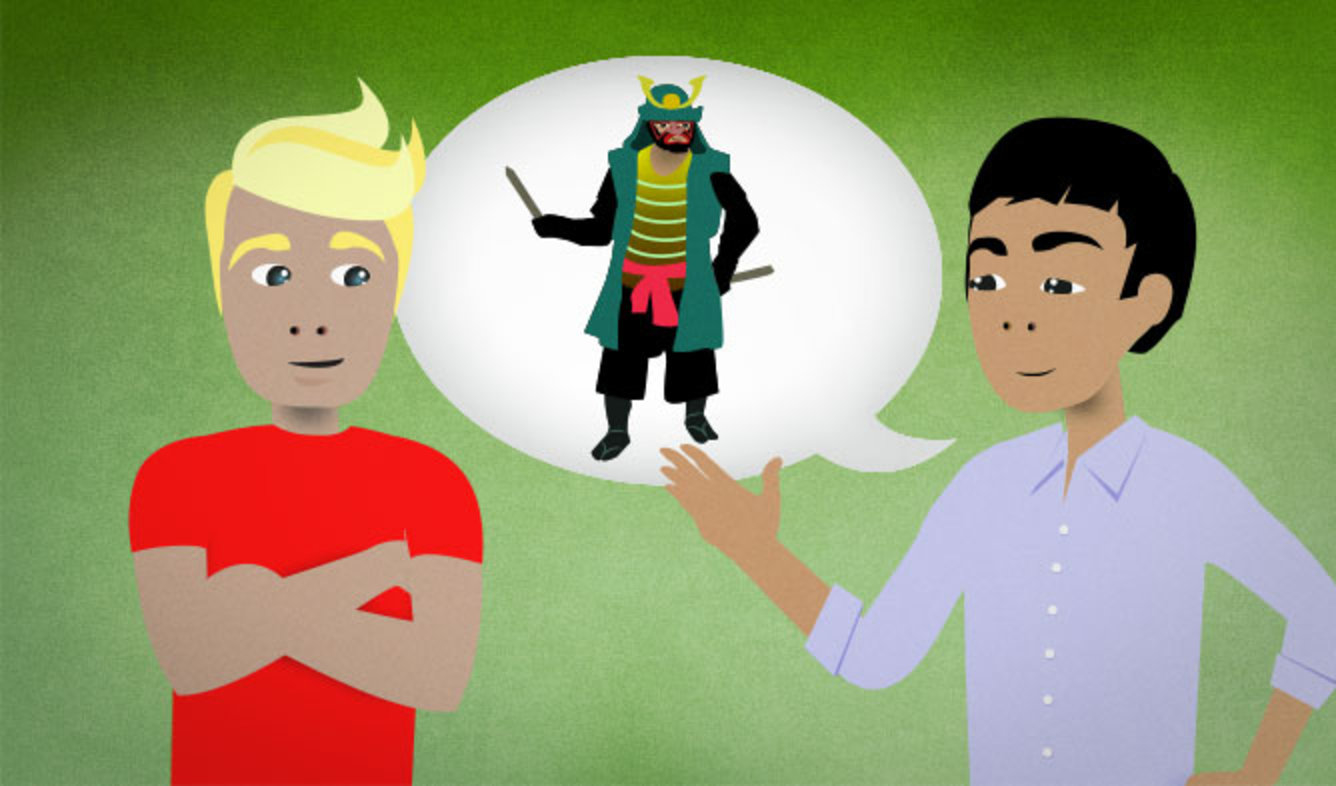“I'm descended from a famous 16th-century warrior.”
One of your ancestors is an interesting historical figure. You're bragging about it to a friend.
I'm descended from a famous 16th-century warrior.
Want Video and Sound? Follow us on YouTube

(someone) is descended from (someone)
Use this phrase to explain who someone's ancestors were. Your ancestors are the people like your great-great-grandparents, great-great-great-grandparents, and so on.
You can say that a person "is descended from" a single person:
She claims to be descended from Abraham Lincoln.
Or you can say that someone is descended from a group of people:
They're descended from the original inhabitants of the island.
a (first/second/19th/etc.)-century (something)
When English speakers say "20th century", it means the years from 1901-2000. Similarly, "18th century" is 1701-1800, and "first centry" is 1-100 A.D.
You can use this phrase as an adjective like this:
They discovered the sunken remains of a fifteenth-century trading ship.
They didn't have our modern 21st-century conveniences back then.
Without the hyphen ("-"), you can use this phrase as a noun too:
They've been fighting off and on since the 17th century.
a warrior
A "warrior" is someone who fights in battles.
We mostly use the word "warrior" to talk about people from the past who fought hand-to-hand, using things like swords, bows and arrows, and spears. Warriors were not only strong, but also a little wild.
You could also call a modern soldier a "warrior". In that case, it would sound like that soldier was very strong, brave, and determined.
